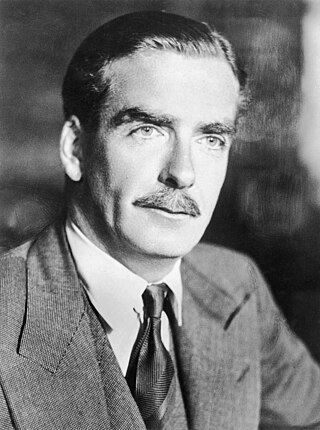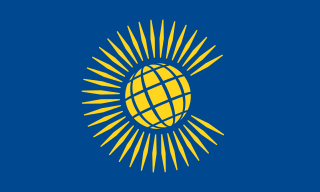
The Suez Crisis also known as the Second Arab–Israeli War, the Tripartite Aggression in the Arab world and as the Sinai War in Israel, was a British–French–Israeli invasion of Egypt in 1956. Israel invaded on 29 October, having done so with the primary objective of re-opening the Straits of Tiran and the Gulf of Aqaba as the recent tightening of the eight-year-long Egyptian blockade further prevented Israeli passage. After issuing a joint ultimatum for a ceasefire, the United Kingdom and France joined the Israelis on 5 November, seeking to depose Egyptian president Gamal Abdel Nasser and regain control of the Suez Canal, which Nasser had earlier nationalised by transferring administrative control from the foreign-owned Suez Canal Company to Egypt's new government-owned Suez Canal Authority. Shortly after the invasion began, the three countries came under heavy political pressure from both the United States and the Soviet Union, as well as from the United Nations, eventually prompting their withdrawal from Egypt. Israel's four-month-long occupation of the Egyptian-occupied Gaza Strip and Egypt's Sinai Peninsula enabled it to attain freedom of navigation through the Straits of Tiran, but the Suez Canal was closed from October 1956 to March 1957.

Maurice Harold Macmillan, 1st Earl of Stockton was a British statesman and Conservative politician who was Prime Minister of the United Kingdom from 1957 to 1963. Nicknamed "Supermac", he was known for his pragmatism, wit, and unflappability.

The Treaty of San Francisco, also called the Treaty of Peace with Japan, re-established peaceful relations between Japan and the Allied Powers on behalf of the United Nations (UN) by ending the legal state of war, military occupation and providing for redress for hostile actions up to and including World War II. It was signed by 49 nations on 8 September 1951, in San Francisco, California, at the War Memorial Opera House. Italy and China were not invited, the latter due to disagreements on whether the Republic of China or the People's Republic of China represented the Chinese people. Korea was also not invited due to a similar disagreement on whether South Korea or North Korea represented the Korean people.

The Head of the Commonwealth is the ceremonial leader who symbolises "the free association of independent member nations" of the Commonwealth of Nations, an intergovernmental organisation that currently comprises 56 sovereign states. There is no set term of office or term limit and the role itself has no constitutional relevance to any of the member states within the Commonwealth. The position is currently held by King Charles III. Head of the Commonwealth is also a title of the monarch of each of the Commonwealth realms according to the Royal Style and Titles Act.

Vengalil Krishnan Krishna Menon was an Indian academic, independence activist, politician, lawyer, and statesman. During his time, Menon contributed to the Indian independence movement and India's foreign relations. He was among the major architects of Indian foreign policy, and acted as Jawaharlal Nehru's diplomat.

Solomon West Ridgeway Dias Bandaranaike, also known as "The Silver Bell of Asia", was a Ceylonese statesman who served as the fourth Prime Minister of the Dominion of Ceylon, serving from 1956 until his assassination. The founder of the left-wing and Sinhalese nationalist Sri Lanka Freedom Party, his tenure saw the country's first left-wing reforms.
The United Kingdom is a founding member of the United Nations and one of five permanent members of the UN Security Council.

Ceylon was an independent country in the Commonwealth of Nations from 1948 to 1972, that shared a monarch with other dominions of the Commonwealth. In 1948, the British Colony of Ceylon was granted independence as Ceylon. In 1972, the country became a republic within the Commonwealth, and its name was changed to Sri Lanka.

Sir George Claude Stanley Corea, KBE was a Sri Lankan politician and diplomat. Former President of the United Nations Security Council, he had served as the Ceylonese Minister of Labour, Industry and Commerce, the Ceylonese Ambassador to the United States, the Ceylonese High Commissioner to the United Kingdom and the Ceylonese Representative to the United Nations.

Robert Anthony Eden, 1st Earl of Avon was a British politician who served as Prime Minister of the United Kingdom and Leader of the Conservative Party from 1955 until his resignation in 1957.

The Commonwealth of Nations, often simply referred to as the Commonwealth, is an international association of 56 member states, the vast majority of which are former territories of the British Empire from which it developed. They are connected through their use of the English language and historical-cultural ties. The chief institutions of the organisation are the Commonwealth Secretariat, which focuses on intergovernmental relations, and the Commonwealth Foundation, which focuses on non-governmental relations between member nations. Numerous organisations are associated with and operate within the Commonwealth. It is known colloquially as the British Commonwealth.
The 1953 Commonwealth Prime Ministers' Conference was the sixth Meeting of the Heads of Government of the Commonwealth of Nations. It was held in the United Kingdom in June 1953 on the occasion of the coronation of Queen Elizabeth II, and was hosted by that country's Prime Minister, Sir Winston Churchill.
The 1957 Commonwealth Prime Ministers' Conference was the ninth Meeting of the Heads of Government of the Commonwealth of Nations. It was held in the United Kingdom in June 1957, and was hosted by that country's Prime Minister, Harold Macmillan.

The 1960 Commonwealth Prime Ministers' Conference was the tenth Meeting of the Heads of Government of the Commonwealth of Nations. It was held in the United Kingdom in May 1960, and was hosted by that country's Prime Minister, Harold Macmillan.
The 1955 Commonwealth Prime Ministers' Conference was the seventh Meeting of the Heads of Government of the Commonwealth of Nations. It was held in the United Kingdom in January 1955 and was hosted by that country's Prime Minister, Sir Winston Churchill.

The term Big Four Conference may refer to one of several conferences between heads of state or foreign ministers of the victorious nations after World War I (1914–18) or during and after World War II (1939–45).
The following is a timeline of the first premiership of Winston Churchill, who was the Prime Minister of the United Kingdom from 1940 to 1945 and again from 1951 to 1955. Churchill served as the Prime Minister of the United Kingdom during the bulk of World War II. His speeches and radio broadcasts helped inspire British resistance, especially during the difficult days of 1940–41 when the British Commonwealth and Empire stood almost alone in its active opposition to Nazi Germany. He led Britain as Prime Minister until victory over Nazi Germany had been secured.

June 1956 was the sixth month of that leap year. The month which began on a Friday and ended after 30 days on a Saturday

S.W.R.D. Bandaranaike's foreign policy emphasized the idea of non-alignment however he had strong ties with socialist and communist nations as well as with Arab nations and India. He shifted the foreign policy of Sri Lanka from being pro-western under the previous right wing United National Party governments to non-alignment under his left wing Sri Lanka Freedom Party government. A remarkable accomplishment of his foreign policy was removing British naval and air bases from Sri Lanka.












